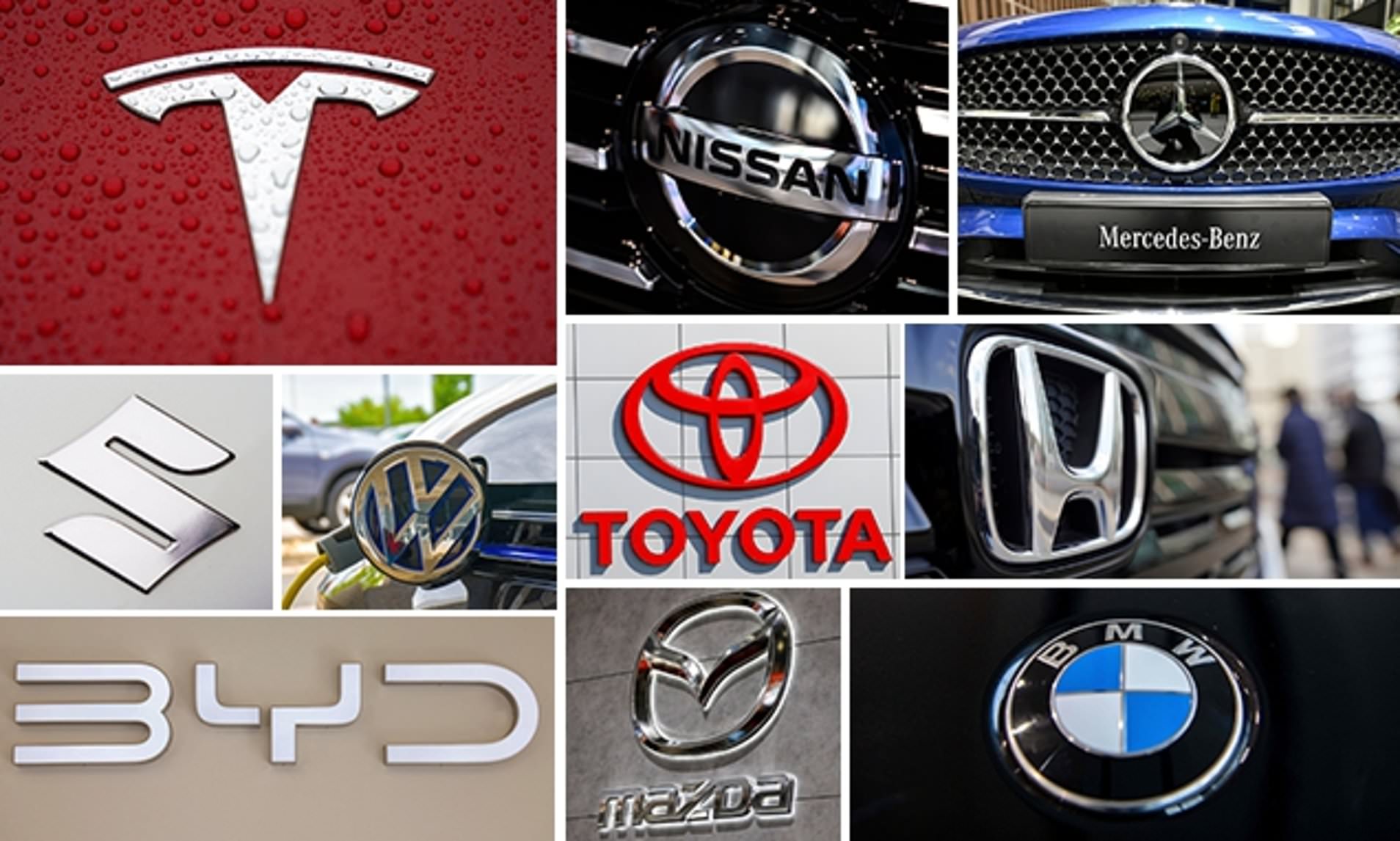
CAR MAKERS LEADING THE WAY IN THE EV RACE AND THE MANUFACTURERS FALLING BEHIND - SEE WHERE YOUR BRAND RANKS
US electric vehicle giant Tesla and China's BYD are vying with one another for pole position in the global electric car market, but some popular brands are falling further behind, according to a new report.
The International Council on Clean Transportation (ICCT) released a ranking of the world's biggest auto makers based on each's electric car plans and models on sale in 2023.
While researchers found some manufacturers made significant progress towards low-emission transport over the past year, including Mercedes-Benz and MG, others had fallen down the rankings, notably Japanese manufacturers Suzuki, Mazda, Honda, Nissan and Toyota, all of which have been slammed in the report.
The ICCT's Global Automaker Rating 2023 report assessed the EV credentials of 21 popular vehicle brands based on their strategic vision, market dominance and technology performance.
It found Tesla and BYD lead the world in electric vehicle plans, with the US car maker extended its lead over its Chinese counterpart due to a high sales volume.
In contrast, BYD dropped back slightly as the report found that almost half of its sales were plug-in hybrid vehicles that also rely on petrol, rather than fully-electric models.
Tesla also trumped rivals for having the best-performing EVs on sale today, scoring top marks for charging speeds, battery range and energy consumption.
'Tesla and BYD continued to lead the pack of global manufacturers in the ZEV [zero emission vehicle] transition,' the research paper concludes.
'Both manufacturers already produce only electric vehicles but their future places at the top are not necessarily secure.
'Looking ahead, BYD will need to shift its 48 per cent sales share of plug-in hybrid electric vehicles (PHEVs) to full ZEVs and improve the performance of its BEVs.
'Both Tesla and BYD will also need to introduce new models across the passenger vehicle class spectrum.'
In the overall list of most-advanced EV brands, BMW ranked third, while Mercedes-Benz leapfrogged five places from 2022 to reach fourth in the order having received praise for its efforts to recycle and repurpose batteries.
Chinese giant SAIC, which owns the relaunched MG brand, slotted into fifth spot for its growing sales and improving performance of its electric cars, also overtaking Stellantis, the parent group of brands including Citroen and Vauxhall (*see a full list of which brands are owned by the car makers listed in our fact box at the bottom of this page).
The market-wide review found brands based in Japan and India scoring the lowest among the car makers analysed.
It was Suzuki placing last in the list, despite the fact it had increased its EV sales during the year. The ICCT said it lost points based on the small range of low-emission vehicles in its new model line-up and the high energy consumption of these EVs.
It was joined by fellow Japanese makers Mazda, Nissan, Honda and the world's biggest car seller Toyota in the lowliest positions.
All these companies - plus Jaguar Land Rover's Indian parent company Tata - were dubbed 'laggards' in the study.
It comes as Toyota, Mazda and Subaru all reached an agreement last month to join forces to continue development of small internal combustion engines.
These will be compatible with hybrid technology and run on synthetic 'e-fuels' as part of the triumvirate of car brands' efforts to double down on shunning an EV-only future.
The report concluded that Toyota, Honda, Nissan, and Mazda 'all need to catch up on diversifying their EV offerings and increase EV investment'.
ICCT chief program officer Stephanie Searle said the rankings should be considered an 'important indicator of progress in the transport market' as manufacturers continue to work towards an end date for the sale of new petrol and diesel cars in 2035 across major markets, including Australia, Europe, the UK and United States.
'Auto makers that are slow to invest in the advanced technology that regulations are designed to promote may soon find themselves outpaced by competitors who more wisely bet on the future,' Searle said.
The report found transport regulations in Europe, the UK, US, and Canada were expected to boost electric vehicle sales 'over the coming years' and EV sales had increased by 40 per cent worldwide between 2022 and 2023.
2024-06-06T06:16:59Z dg43tfdfdgfd